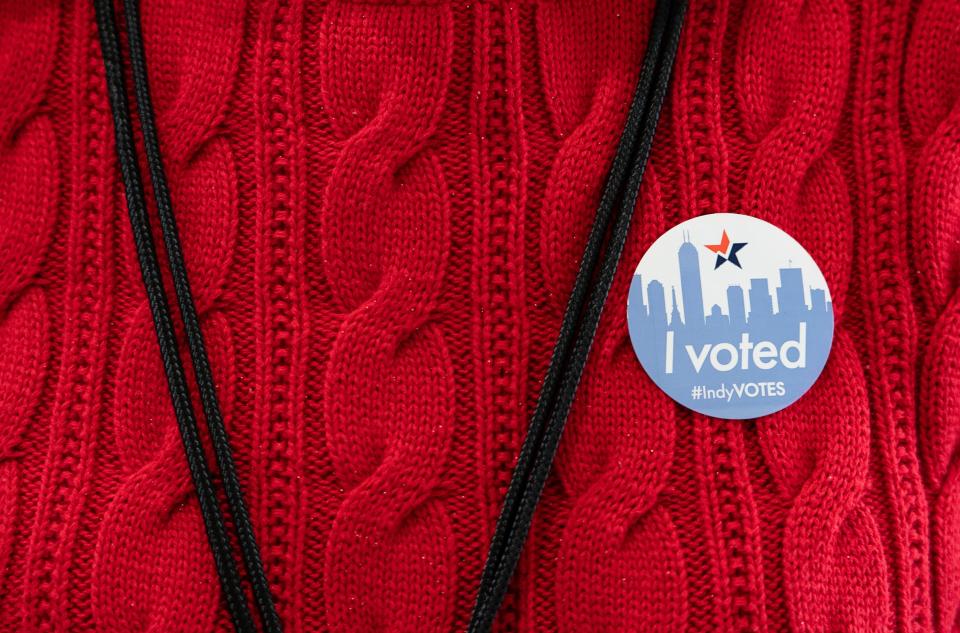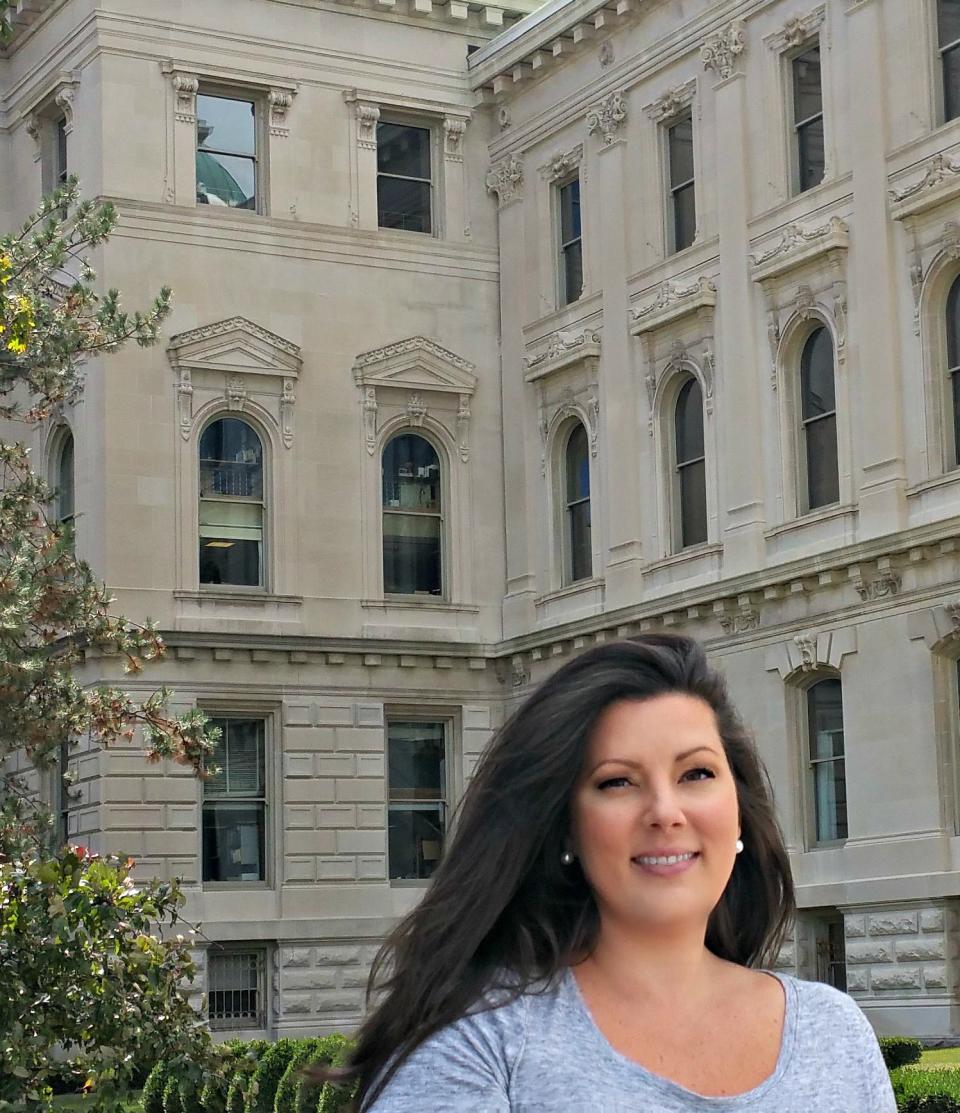Indianapolis primary voters' message to their politicians: Do better or else
Before my life was filled with politics and statehouse committee rooms, I was an opera singer. Some say politics and opera have a lot in common. They’re not wrong.
I still sing occasionally, sometimes at Trinity Episcopal in Indianapolis, sometimes with friends at karaoke, but mostly I teach my four kids how to match pitch. One of my favorite tunes is Dinah Washington’s 1959 hit “What a diff’rence a Day Makes,” mostly because its lyrics have such an iconic ability to draw parallels to whatever political drama is going on at the Statehouse, where one day your bill is alive and the next minutes it’s on life support.
Drawing parallels was easy this primary on Tuesday. Mostly because Democrats and Republicans had one thing in common this municipal election: Neither party had any idea what to expect without the unilateral control that the antiquated slating process afforded party insiders.
The end of both parties’ undemocratic slating process in Marion County is a victory in itself. After it was done away with, we saw an unprecedented interest in municipal races, driven by a slew of candidates, neighborhood activists, and change agents who previously hadn’t been able to meaningfully partake in Indianapolis’ representative democracy.
More: Voter turnout in Indianapolis municipal primary is the highest since 2011
But 24 little hours changed all that. That’s all it took for Indianapolis Democrats to deliver a crucial warning to elected officials, both current and prospective: do better by your voters — or else.
Now that might sound like a threat to you, and I would tend to agree. While ‘or else’ wasn’t stated in as many words, it was certainly insinuated in many campaigns leading up to Tuesday’s primary.
More: Indianapolis voters oust 3 Democratic incumbents from City-County Council
And the origins may very well be the same as the origins of the very process we uprooted with the removal of slating — frustration. As a result, many primary voters were particularly affected by the slow drip of political skepticism that’s come at us hard since COVID took hold and life has become even more unaffordable for many. Last Tuesday, Democrats sent the signal there is no longer any tolerance for inaction — each elected official must make constituent outreach a priority. And failing to heed that warning is a mistake for any candidate or elected official — Democrat or Republican, Libertarian or in between.
This is an incredibly important signal, especially when Republican Statehouse leaders representing Marion County have obsessed themselves with stalling Indianapolis’ headway when it comes to lifesaving policies that were a result of preventable pedestrian and bicyclist deaths throughout Indianapolis.

And that’s a solution the council will still need to find — brokering a ceasefire with a legislature intent on destroying local solutions like the lifesaving No Turn on Red policy passed by the Council’s Public Works Committee back in April. Will that happen with Republicans at the helm in the mayor’s office? Doubtful.
A political mentor of mine once said, “Primaries are bad for business.” And I used to agree with him until I quickly realized it was me and other Indiana Young Democrats he was trying to stifle. Those were the words of a tired hack who was losing his ability to exert control.
In reality, primaries are great for turnout — and despite our Secretary of State Diego Morales’ work to decrease Hoosiers’ access to vote (see House Enrolled Act 1334), turnout is higher when voters have choices.
Tuesday’s municipal primary in Marion County enthused tens of thousands of voters — enough to result in turnout 45% higher than the 2019 election, according to the Marion County Clerk. That’s about 12% turnout countywide, which is better than the 2019 primary election, but that leaves us with plenty of work to do.
Twenty-four little hours can change a lot in the blue haven of Indianapolis surrounded by a swath of gerrymandered purple. Twenty-four little hours taught Indianapolis politicians that their days of expecting votes just because of their name or money or influence are over.

And while armchair pundits can float tidbits along the lines of ‘Jeff Shreve did a lot to help mayoral hopeful Rep. Robin Shackleford along,’ many of us working to secure a positive future for Indianapolis in terms of its infrastructure, its schools, its kids, its people know that it’s going to take all of us (winners, losers, majority party, minority party). We have work to do in order to support the next mayor and City-County Council to make Indianapolis a safer place to live—an even better destination for the world to visit—and the best place to live and thrive.
Indeed, what a difference a day made.
Lindsay Shipps Haake is a political and legislative strategist at Onward & Upward Strategies in Indianapolis.
This article originally appeared on Indianapolis Star: Indianapolis primary voters to politicians: Do better or else

